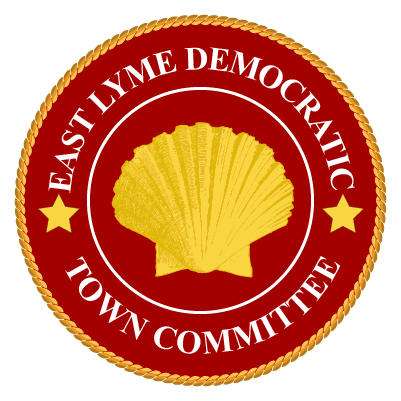This year, the ELDTC has the opportunity to seat THREE Dems on each Planning and Zoning. Moreover, the level of recent misapprehension and discord associated with these issues underlines the need for emphasis on civility, transparency, and -most of all- adherence to existing Town Guidance. To that end, our team has crafted a singular, joint platform, outlined here. Vote Line A to elect our full Planning and Zoning slate— to reduce the drama, and to GET DOWN TO BUSINESS with care and professionalism.
A 12-Point Plan for East Lyme Planning & Zoning
GROWING SMARTER, NOT JUST BIGGER
Jointly crafted by the Democratic Candidates for the
Zoning & Planning Commissions, 9/1/23
1. Keep Niantic Village “a Village”: Strengthen and fully enforce existing rules against oversized and ugly buildings, stop demolishing “old beauties” and “funky charm,” stop displacing long-standing, locally owned, “legacy” establishments that provide local gathering spots, valued services, and a sense of place. Promote aesthetically compatible, right-sized investments, with adequate parking, and fill in missing and desired activities and services, like a downtown grocer.
2. Preserve our “Green” & “Blue” Belts: Adopt an urban tree and forest protection program, zoning tools that help build a “protected and connected” open space system, protect our scenic roadways and favorite views, improve buffers that protect water resources, and require state of the art stormwater runoff management and low impact development standards that protect water quality, promote rainwater harvesting, and reduce demand.
3. Make Our Streets Better for Cars, Bikes, and Pedestrians: Create better bike paths and sidewalks, stop waiving sidewalk requirements, and require good traffic and parking solutions from developers.
4. Add Affordable Housing Where It Belongs, Not in Rural Areas: Use the 8-30g 4-year moratorium option to block projects in rural areas; build 250 more affordable units to permanently restore local control; adopt carefully crafted rules that allow accessory dwelling units where they can fit in and are wanted; promote beautifully designed affordable townhomes and clusters near walkable retail and transit.
5. Stop Breaking Zoning Rules and the 2020 Town Plan of Conservation & Development: Stop ignoring adopted regulations on the size and design of buildings, waiving rules for landscaped buffers and sidewalks, and violating the 2020 Town Plan by rezoning parcels from rural to apartment buildings on scenic shores and roads.
6. Public Notices and Participation: Bring more transparency to decision-making via social media, better notification of larger development permit applications, and community workshops on key issues.
7. Improve & Beautify the Commercial Districts on Flanders and Boston Post Roads: Create a Village District overlay zone or other means of upgrading the signs, buildings, parking, sidewalks, bike lanes, crosswalks, transit stops, landscaping, and historic preservation in the course of well-regulated, incentivized infill.
8. Preserve and Strengthen Local Farming and Agritourism: Allow compatible agritourism and other uses to be used by farms to increase financial sustainability, ensure adequate buffering from incompatible residential development, consider a new farm zone district where cluster or conventional residential subdivisions would undermine viable, commercial sustainable farming and forest practices.
9. Stop Demolishing Historic Places and Features: Introduce new incentives for the restoration and preservation of historically or aesthetically valuable buildings, stone walls, and other cultural assets, and limit the demolition of valued assets whenever possible.
10. Increase Climate Resilience and Hazard Mitigation: Require and incentivize green energy-star buildings and electric vehicle parking and charging, guide commercial scale solar projects toward industrial and parking areas and away from protected open spaces, remove barriers to household solar panels, prevent stormwater discharge from upland projects to roads and buildings that are susceptible to flooding and adopt best new practices to protect against sea rise and storm surge.
11. Enable Walkable Neighborhoods: Give neighborhoods the opportunity to consider special permits for a few small retail shops where neighbors might want them, and walking is safe.
12. Short-Term Rental Regulations: Establish permits, establish fees, and regulations to allow but control short-term rental regulations.
Click here >> for selected Planning candidate biographies and Zoning candidate biographies.
